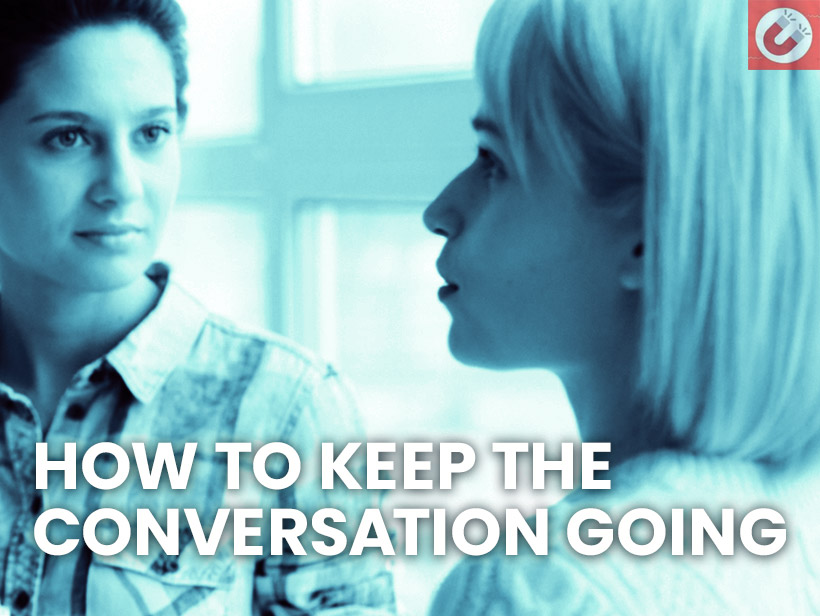How Gradual Exposure Can Transform Your Social Life
Have you ever found yourself frozen in place, heart racing, palms sweating, at the mere thought of talking to someone you’re attracted to? You’re not alone. For many, the idea of approaching someone they find interesting or attractive can be downright terrifying. But what if there was a way to overcome this fear and develop the confidence to approach anyone, anytime?
In this comprehensive guide, we’ll explore how gradual exposure techniques can revolutionize your social skills, particularly when it comes to approaching and talking to people you’re interested in. Whether you’re wondering “How do I talk to girls?”, “How can I practice talking to girls?”, or “What’s the best way to approach girls?”, this article has got you covered.
Understanding Approach Anxiety – The Science Behind Your Fear
Before we dive into solutions, it’s crucial to understand why approaching someone can feel so daunting. Approach anxiety is a form of social anxiety that specifically relates to initiating interactions with others, especially potential romantic interests.
The Biology of Approach Anxiety
When you contemplate approaching someone, your brain can interpret this as a potential threat, triggering the “fight or flight” response. This physiological reaction includes:
- Increased heart rate
- Sweating
- Shallow breathing
- Muscle tension
These physical symptoms can make you feel uncomfortable and exacerbate your anxiety, creating a vicious cycle.
Psychological Factors
Approach anxiety isn’t just biological – it also has psychological components:
- Fear of rejection
- Concern about negative evaluation
- Perfectionism
- Low self-esteem
Dr. Stefan G. Hofmann, a professor of psychology at Boston University, notes that “social anxiety disorder is maintained by a vicious cycle of negative thoughts, feelings, and behaviors that reinforce each other.”
The Power of Gradual Exposure – Breaking the Cycle of Anxiety
Now that we understand the problem, let’s explore the solution: gradual exposure.
What is Gradual Exposure?
Gradual exposure, also known as systematic desensitization, is a therapeutic technique used to treat various anxieties and phobias. It involves gradually exposing yourself to the source of your anxiety in a controlled, step-by-step manner.
The Science Behind Gradual Exposure
Research has consistently shown the effectiveness of gradual exposure in treating anxiety disorders. A meta-analysis published in the Journal of Clinical Psychology found that exposure therapy is highly effective for treating anxiety disorders, with large effect sizes across various types of anxiety.
Dr. Edna Foa, a pioneer in the treatment of anxiety disorders, states, “Exposure therapy is based on the principle that a feared stimulus or situation becomes less anxiety-provoking with repeated exposure in a safe environment.”
Applying Gradual Exposure to Improve Your Approach Skills
So, how can you apply gradual exposure to overcome your fear of approaching people you’re attracted to? Here’s a step-by-step guide:
1. Create a Fear Hierarchy
Start by creating a list of situations related to approaching someone, ranked from least anxiety-provoking to most anxiety-provoking. For example:
- Smiling at a stranger
- Making small talk with a cashier
- Asking someone for directions
- Complimenting a stranger
- Starting a conversation with someone at a social event
- Approaching someone you find attractive to start a conversation
2. Start Small and Build Up
Begin with the least anxiety-provoking situation on your list. Practice this until it becomes comfortable. Then, move on to the next item on your list.
3. Use Visualization Techniques
Before attempting each step in real life, spend time visualizing yourself successfully completing the interaction. This mental rehearsal can help reduce anxiety and improve performance.
4. Practice Regularly
Consistency is key. Set aside time each day or week to practice your social skills. The more you practice, the more natural these interactions will become.
5. Celebrate Small Victories
Acknowledge and celebrate each successful interaction, no matter how small. This positive reinforcement will help build your confidence over time.
The Benefits of Structured Practice
While gradual exposure can be practiced on your own, there are significant benefits to engaging in structured practice sessions:
1. Safe Environment
Structured practice provides a safe, controlled environment where you can take risks without fear of real-world consequences.
2. Immediate Feedback
In a structured setting, you can receive immediate feedback on your approach, helping you refine your technique more quickly.
3. Varied Scenarios
Structured practice allows you to encounter a variety of scenarios and personalities, preparing you for diverse real-world interactions.
4. Support System
Practicing with others who share similar goals creates a supportive community, providing encouragement and shared experiences.
Real-Life Success Stories
To illustrate the power of gradual exposure and structured practice, let’s look at some real-life success stories:
“I used to freeze up at the thought of talking to someone I was attracted to. After six weeks of practice at Jaunty, I was able to confidently approach and start conversations with people at bars and social events. It’s like I’m a different person now!” – Alex, 28
“The structured practice sessions were a game-changer for me. Being able to practice approaching people in a safe environment helped me identify and overcome my specific anxiety triggers. Now, approaching someone I’m interested in feels natural and even exciting.” – Rafi, 32
Overcoming Common Obstacles
As you embark on your journey to improve your approach skills, you may encounter some obstacles. Here’s how to overcome them:
1. Fear of Rejection
Remember that rejection is a normal part of social interactions. Reframe rejection as a learning opportunity rather than a personal failure.
2. Perfectionism
Let go of the idea that every interaction needs to be perfect. Focus on progress, not perfection.
3. Comparison to Others
Avoid comparing your progress to others. Everyone’s journey is unique, and what matters is your personal growth.
4. Plateaus
It’s normal to experience plateaus in your progress. When this happens, try mixing up your practice routine or seeking new challenges.
The Long-Term Impact – Beyond Approaching
The skills you develop through gradual exposure and structured practice extend far beyond just being able to approach people you’re attracted to. These techniques can have a profound impact on various aspects of your life:
1. Professional Growth
Improved social skills can lead to better networking abilities, more confident presentations, and stronger workplace relationships.
2. Personal Relationships
The confidence you gain will positively impact all your relationships, from friendships to family dynamics.
3. Overall Well-being
Overcoming social anxiety can lead to reduced stress, improved self-esteem, and a greater sense of life satisfaction.
Conclusion – Your Journey to Social Confidence Starts Now
Mastering the art of approaching others, especially those you’re attracted to, is a journey. It requires patience, persistence, and practice. But with gradual exposure techniques and structured practice, you can overcome your approach anxiety and develop the confidence to talk to anyone, anytime.
Remember, every expert was once a beginner. Your journey to social confidence starts with a single step – or in this case, a single “hello.” So take that step today, and watch as your social world expands before your eyes.
Are you ready to transform your social life? Consider joining a structured practice program or creating your own gradual exposure plan. Your future confident self will thank you.



